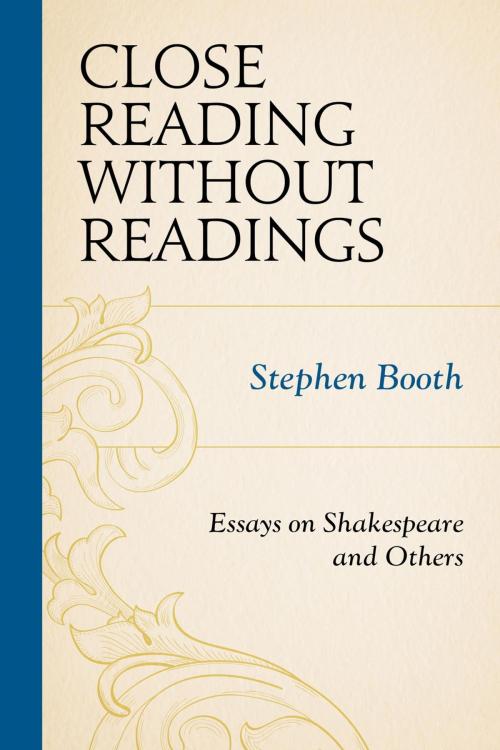Close Reading without Readings
Essays on Shakespeare and Others
Fiction & Literature, Literary Theory & Criticism, British, Nonfiction, Entertainment, Theatre, Performing Arts| Author: | Stephen Booth | ISBN: | 9781611478914 |
| Publisher: | Fairleigh Dickinson University Press | Publication: | December 14, 2015 |
| Imprint: | Fairleigh Dickinson University Press | Language: | English |
| Author: | Stephen Booth |
| ISBN: | 9781611478914 |
| Publisher: | Fairleigh Dickinson University Press |
| Publication: | December 14, 2015 |
| Imprint: | Fairleigh Dickinson University Press |
| Language: | English |
Dealing mainly with the works of William Shakespeare, the essays in Close Readings without Readings reflect Stephen Booth’s lifelong interest in uncovering the ways great literature works upon readers. As the book’s title suggests, the author does not aim to create new or novel interpretations or to uncover the political agendas of literary works, but to notice language patterns—repetitions, analogies, correspondences, echoes, overtones—and other ways in which the choice and the arrangement of words affect readers. For Booth, close reading is a practice of attentiveness. He notices how, why, and in what ways Shakespeare’s works affect his readers. Whether readers agree with the premises of a literary work or not, they subject themselves, knowingly or not, to its effects. For Booth, what we value in literature is the experience. He has devoted his own work to recognizing the nature, process, and functions of reading literature, and to teaching others to do the same. Recent years have seen Booth’s efforts recognized by volumes dedicated both to close reading and to his achievements as editor, scholar, critic, and teacher.
Dealing mainly with the works of William Shakespeare, the essays in Close Readings without Readings reflect Stephen Booth’s lifelong interest in uncovering the ways great literature works upon readers. As the book’s title suggests, the author does not aim to create new or novel interpretations or to uncover the political agendas of literary works, but to notice language patterns—repetitions, analogies, correspondences, echoes, overtones—and other ways in which the choice and the arrangement of words affect readers. For Booth, close reading is a practice of attentiveness. He notices how, why, and in what ways Shakespeare’s works affect his readers. Whether readers agree with the premises of a literary work or not, they subject themselves, knowingly or not, to its effects. For Booth, what we value in literature is the experience. He has devoted his own work to recognizing the nature, process, and functions of reading literature, and to teaching others to do the same. Recent years have seen Booth’s efforts recognized by volumes dedicated both to close reading and to his achievements as editor, scholar, critic, and teacher.















